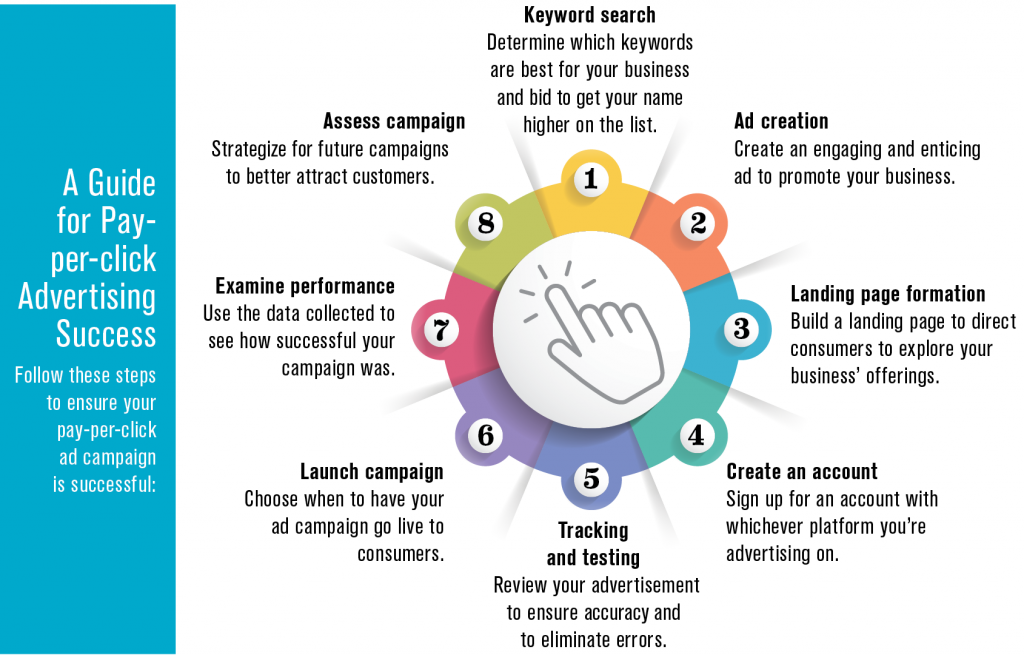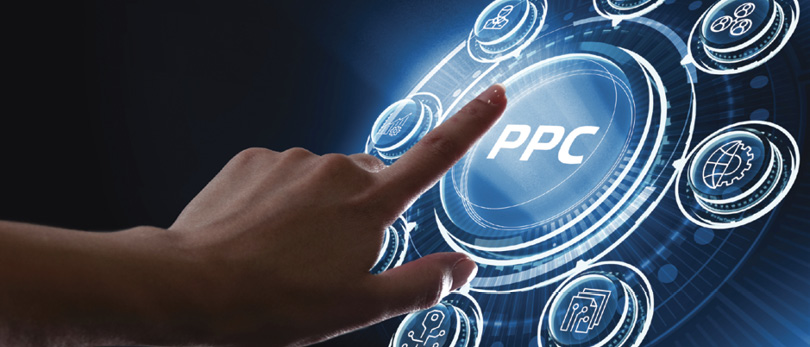Pay-per-click advertising is a great way to take your digital marketing to the next level
By Matt Alderton
The average person spends more than 12 hours per week on the computer, according to Wellnomics, a software company that specializes in computer ergonomics. During that time, it says, the typical user clicks their mouse 7,400 times—nearly 1,500 times per day during a five-day workweek.
That’s a lot of clicks.
 Although most clicks are spent sending emails, shopping online and browsing social media, a good many also are devoted to real estate, suggests the National Association of REALTORS®, which says the internet is a primary research tool for nine in 10 homebuyers and is the first step in the homebuying process for more than half (52%) of consumers.
Although most clicks are spent sending emails, shopping online and browsing social media, a good many also are devoted to real estate, suggests the National Association of REALTORS®, which says the internet is a primary research tool for nine in 10 homebuyers and is the first step in the homebuying process for more than half (52%) of consumers.
From browsing listings and looking for agents to researching home values and learning about the homebuying process, there’s no question: People who are interested in buying or selling a home do an awful lot of clicking. If you play your cards right, they might spend some of their clicks—and eventually some of their money—with you, says REALTOR® Carrie J. Little, designated managing broker at CarMarc Realty Group in Warrenville, Illinois. During her 21 years in real estate, she’s tried all varieties of digital marketing but keeps coming back to one tried-and-true tool: pay-per-click (PPC) advertising.
“My best ROI from a PPC ad was from a 2-minute video on down payment resources,” recalls Little, who did a live broadcast and subsequently paid $10 to advertise a recording of it via PPC. “I closed 10 transactions from the one 2-minute video resulting in nearly $2 million.”
Although returns that generous aren’t typical, small investments can yield big results, suggests Little, who says the first step is the easiest: “Simply start,” she suggests.
What is PPC?
Before you begin experimenting with PPC advertising, it’s helpful to understand exactly what it is.
“Pay-per-click is just that,” Little says. “It’s when an entrepreneur or business pays to get more clicks to a specific digital platform. That platform might be your website, a free download, your listing, a private Facebook group or even a video to teach consumers something.”
PPC differs from traditional advertising and from organic search engine marketing. With the former—a TV commercial or a billboard, for example—you pay a set fee in exchange for exposure to lots of people who may or may not be interested in your services. With the latter, you try to “earn” visits to your website by creating content that’s so useful to people who need your services that it shows up first in their internet search results.
With PPC, you buy your spot at the top of search results—the sponsored links at the top of Google search results are PPC ads—but you pay only when users click your ad.
What are the benefits of PPC?
With PPC, you pay only what you can afford. You can spend $10, $100, $1,000 or more per day—you decide. Whatever your budget, you set a spending limit, then accrue charges as users click your ad.
It’s cheaper than traditional advertising, and it also can be more effective. After all, with PPC, you can target specific consumers based on their demographics and internet browsing history. And of course, you’re paying only to reach people who are actually interested in your services. While not everyone who drives by a billboard is interested in real estate, for example, everyone who clicks on a real estate ad probably is.
Also, it’s easier to measure and track the performance of PPC ads. Using free tools like Google Analytics, you can see how your ads are performing, make adjustments on the fly and refine your strategy based on what you learn.
What’s the best way to get started?
There are a few questions you should answer before starting a PPC campaign:
What are your goals? Knowing at the outset what you’re trying to achieve—e.g., more visitors to your website, more followers on social media, more attendees at an open house, more listing appointments with prospects—allows you to set goals and track performance against them.
Where are my prospects? Reaching prospects requires knowing in which digital spaces you can find them. Although Google is the most popular place for PPC advertising, you can purchase PPC ads on Facebook, Twitter, Amazon, YouTube, LinkedIn, TikTok, Yelp and even Etsy.
What keywords are relevant to your business? PPC revolves around keywords—i.e., the search terms people use to find you. Agents targeting sellers, for example, might choose keywords like “how to sell my house” or “home selling tips.” Keep in mind: The more popular a search term is, the more you’ll have to pay for clicks. You must, therefore, strike the right balance between popularity and budget when choosing keywords.
What’s my message? Because character counts are limited, PPC ads force you to be creative but concise. A Google ad, for example, can have up to three headlines with up to 30 characters apiece, followed by a description of up to 180 characters. With such little space, you must be clear and compelling, and include a direct call to action—e.g., “sign up for my e-newsletter,” “follow me on Facebook” or “download my guide to homebuying.”
With explicit goals, a modest budget and a commitment to trial and error, success is assured, according to Little, whose most recent PPC ad helped her grow her Instagram followers from 10,500 to 10,800 followers in just five days. “To start with PPC, spend $10 a week,” she advises. “Basically, make coffee at home and stay out of the coffee shop, and use that money to invest in PPC.”

Brush up your social media advertising knowledge with “8 Steps to Creating Compelling Facebook Ads,” available at CRS.com/recordings.
Photo: iStock.com/putilich








